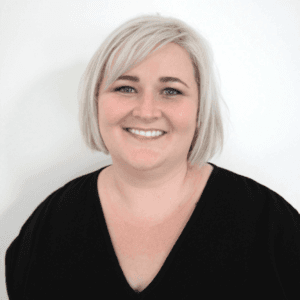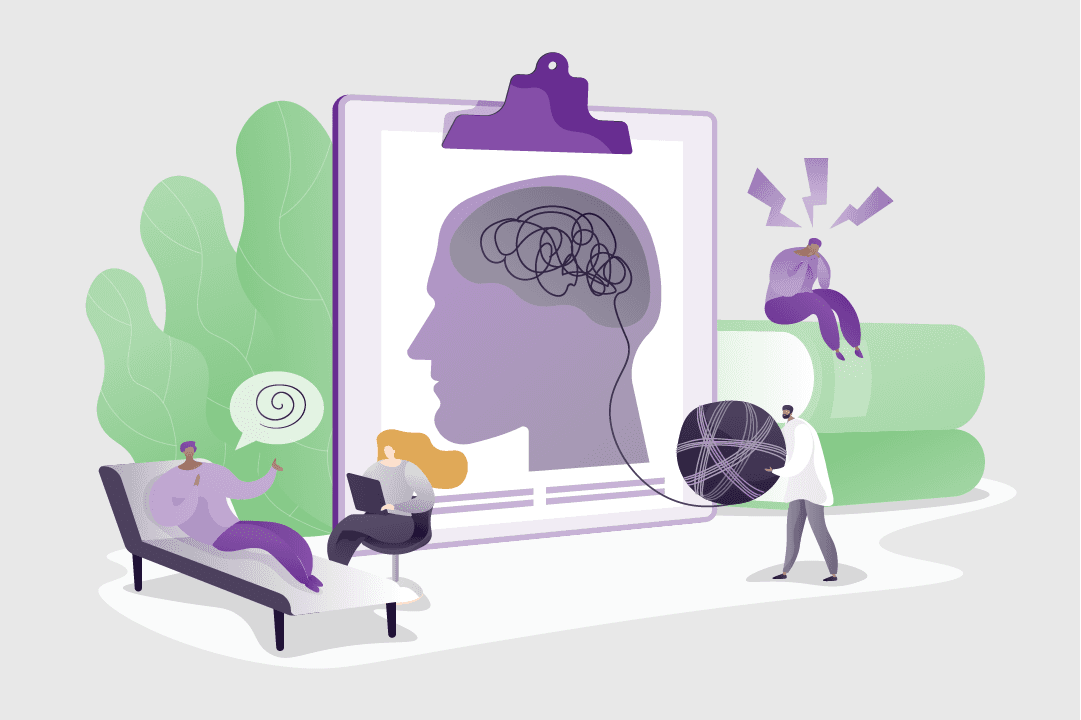- Meet Amber
- 1. You don’t have to know how to fix everyone’s problems
- 2. It’s not like the movies and TV shows; and the stereotypes aren’t 100% accurate
- 3. It’s essential to have been a client, and to have supervision
- 4. The values you have as you get started may well fuel your career, but they may expand too
- 5. The industry is not a utopia
- 6. Sometimes the clients who end up loving the process are different to who you’d expect
- 7. You may never know the impact you have on clients (although when you find out, it’s amazing)
- So you know what to expect, do you have the skills to become a counsellor?
7 Things I Wish I Knew Before Becoming a Counsellor

- Meet Amber
- 1. You don’t have to know how to fix everyone’s problems
- 2. It’s not like the movies and TV shows; and the stereotypes aren’t 100% accurate
- 3. It’s essential to have been a client, and to have supervision
- 4. The values you have as you get started may well fuel your career, but they may expand too
- 5. The industry is not a utopia
- 6. Sometimes the clients who end up loving the process are different to who you’d expect
- 7. You may never know the impact you have on clients (although when you find out, it’s amazing)
- So you know what to expect, do you have the skills to become a counsellor?
Whenever you begin anything new – whether it’s embarking on a different career, or trying out a recipe – there is always an inevitable moment where you think, “I wish I’d known that earlier.” One of the best ways to prepare for a career is getting advice from people who’ve been there.
Amber Rules, a practicing psychotherapist, counsellor, clinical supervisor, and facilitator, shares with us some of the things she wished she knew before becoming a counsellor.
Meet Amber

Amber specialises in working with people impacted by addiction. She is the Director and Founder of Rough Patch, an affordable counselling clinic in Sydney, NSW, offering lower-cost counselling and other mental health supports.
Here are her insights into the reality of being a counsellor.
1. You don’t have to know how to fix everyone’s problems
“I thought that being a counsellor was about knowing all the answers and giving people advice,” Amber says. “It was only later that I realised counselling is about compassionately and curiously lending your mind to someone for 50 minutes, and seeing what comes of that.”
People are often drawn to counselling to help others in their everyday lives and out of an interest in human behaviour. But counsellors can’t decide what their clients should do. Rather, they need to listen closely to their clients, engage in discussions, and ultimately help the client come to their own insights, goals, and conclusions.
Key takeaways
- The pressure isn’t on you to know everything.
- You do, however, have to build listening skills to be patient and attentive to what the client has to say so you can facilitate their therapeutic process and help them set goals for themselves.
- Expect the unexpected!
- Conversations could go in many different directions, and your clients may come up with their own creative solutions.
2. It’s not like the movies and TV shows; and the stereotypes aren’t 100% accurate
Amber remembers her own stereotypical views of counselling: “I imagined every counselling office was like the typical psychoanalysts’ office with a Persian rug, Freud volumes and dark furniture!”
The stereotypes aren’t exactly wrong, as Amber says, “I often joke with my colleagues that to be a counsellor, you’re required to own pashminas and chunky bead necklaces, or plaid jackets with corduroy elbow patches.” But they give a limited account of a diverse workforce where people have an array of approaches and specialisations.
“Like the rest of us, counsellors come from all walks of life, all backgrounds, all life-experience,” Amber explains. “We’re all different, which is really important for ensuring anyone can find a counsellor they feel comfortable with and that understands their experiences.”
In fact, it’s important that health professionals have a variety of perspectives and come from a range of backgrounds. Different counsellors build a natural rapport with different clients, so it benefits clients when they have a variety of professionals they can choose from. On top of this, counsellors who are from underrepresented communities can provide uniquely informed clinical services in a range of counselling fields.
Key takeaways
- If you don’t fit the stereotype, that’s okay, counselling practice doesn’t have to fit a strict mold.
- Diversity is important in the industry — it allows for choice, and for counsellors to be appropriately informed about the populations they’re working with. You may be particularly sought after in social assistance, community services, and counselling if you are: culturally informed; trauma-informed; LGBT-informed.
3. It’s essential to have been a client, and to have supervision
Amber believes that having done therapy before she started studying helped her know what to expect out of the career. But there are other benefits too.
In Australia, it’s common for counsellors to have a supervisor, a more experienced colleague who offers ethical, personal, and professional development. A supervisor is like a mix of a counsellor’s counsellor and a consultant or mentor. They also supplement formal qualifications. Professional accredited bodies such as the Australian Counselling Association (ACA) or the Psychotherapy and Counselling Federation of Australia (PACFA) allow you to find a supervisor who meets high professional standards.
“I believe that regular counselling and clinical supervision is the most essential part of being a good counsellor with longevity in the industry,” says Amber. “You cannot be a good counsellor without having a regular time to reflect and work on yourself, and beheld compassionately accountable for providing good care to your clients.
“In my mind, it’s the same as taking your car to a mechanic who doesn’t know how to drive — they can have all the training in the world, but they don’t know what it’s like to sit in the driver’s seat and actually have the experience of driving. It’s the same with counselling — I don’t think you can truly offer empathy or understanding if you don’t know what it’s like to sit on the client’s couch.”
Key takeaways
- Supervisors provide valuable career development opportunities.
- Taking part in counselling as a client is one of the best ways to learn what to expect, and is also a great personal development opportunity.
- Having someone you can talk to is also helpful self-care in an industry where burn-out is common.
4. The values you have as you get started may well fuel your career, but they may expand too
When Amber decided to change careers to become a counsellor, she was compelled by the desire to do something meaningful and in line with her values. “My values remain the same,” she says. But they’ve also broadened.
“As I have learned more about the structural inequality of access to mental health care in Australia, I have become increasingly motivated to explore ways of making access and affordability better.” She founded her business, Rough Patch, as “a way to try and address the long waitlists and high costs (even with Medicare rebates) of counselling in Australia”.
Increasingly, she’s also interested in supporting counsellors through their careers. “There are so many services who are under-funded, under-resourced, overworked and — the expectations placed on counsellors who work in these systems are extraordinary, and often lead to burn out. So over time, my goals have expanded to include counsellors in the care and support that is often available to clients, but not to us.”
Key takeaways
- Consider what your motivation is: what makes you want to be a counsellor? This is something you can return to as you face career challenges.
- Expect that over your career, your motivations might change as you learn more — counselling is a career path that involves learning and changing over time, well after you first enrol in a course or get accreditation.
Should I Become a Counsellor or a Psychologist?
Discover more about the fields of counselling and psychology, and which might be better for you.
5. The industry is not a utopia
Looking back to when she began studying her counselling course, Amber recalls, “I had an almost utopian view of what work would be like! I imagined lots of really deep, meaningful conversations about therapy and life; plenty of time to think, feel and explore; endless moments of connection and joy.”
Amber maintains that counselling is a rewarding career and an important profession within Australia’s healthcare system. But it’s not all meaningful moments. “My biggest challenges have never been the therapeutic work, but rather the organisations and systems I’ve worked within. I didn’t realise how difficult all of the stuff that sits outside the counselling room can be.”
Amber has found a few aspects of the industry difficult. One was trying to find a job that was a good fit for her, which took a few years.
Another challenge is the salary. “I also expected that therapists made a significant wage. Unfortunately, this isn’t the case,” she explains. “For most of us, it costs a lot to be a counsellor, especially in private practice, and it takes time to be experienced enough to earn more or charge on the higher end of the scale.”
Key takeaways
- Counselling more than just counselling services. It may involve running a business full-time, which can be tough, as Amber explains: “Working in private practice is costly, time-consuming, difficult to get started, and is insecure work”. Alternatively, you may be working with employers, some of whom will be difficult.
- The job outlook is generally good for professional counsellors, but it may take time to find a workplace that’s a great fit for you. Qualified counsellor salaries also rise with experience (you earn more after a few years compared to an entry-level role) but there may be a lot of work involved with progression.
- Counselling jobs are often in underfunded services, which is stressful. “It’s hard to be fully present for a client when you’re worried about these things,” Amber says. “It’s a balance that I have learned over time, but continues to be a challenge.”
- Again, it’s important to invest in your own self-care to ensure that you can sustainably encounter challenges.
24.7%
job growth by 2024
Source
Australia’s Top 6 Highest Paid Fields in Counselling
There are so many different types of counselling careers, how do you decide where to specialise? Check out the top six highest-paying fields in counselling.
6. Sometimes the clients who end up loving the process are different to who you’d expect
“Even after having been a counsellor for quite some time, what still surprises me are the people who really take to counselling as a means for growth and self-exploration,” Amber says. “I’ve often been surprised about the people who really take to long-term counselling and love it, and it still challenges my biases and judgements all the time.”
Clients come to counselling for a range of reasons, including some who aren’t particularly enthusiastic about being there. For example:
- Sometimes young people are pressured to go to counselling sessions by parents or schools.
- Some courts may recommend or order counselling.
- Some clients may be cajoled into counselling by concerned loved ones.
- Some clients might not trust the counselling process.
- Some clients may have behavioural and emotional issues; a mental illness; or health problems. These things can make it difficult for them to engage in counselling.
But even reluctant clients can be rewarding to work with. “I’ve had clients who didn’t really want to be attending counselling,” Amber says. “But by the end of our time together, they were thrilled to have done it. It never ceases to make me smile.”
Key takeaways
- Be prepared to have your assumptions and expectations challenged by clients — they can always surprise you.
- It’s important to be patient as you work with people with different attitudes, needs, and mental health issues. Anybody can benefit from counselling and make positive changes, even if from the outset they seem reluctant or like they’re having a tough time.
- Build counselling skills such as being open to the possibility that counselling may click for a client, and self-awareness of where your biases might be getting in the way.
7. You may never know the impact you have on clients (although when you find out, it’s amazing)
“Counsellors often don’t get to see the results of therapeutic work,” Amber explains. “In terms of gratification, it’s often low-yield!” Often counsellors will see clients over the short-term, for a limited number of face-to-face sessions, so you’ll be left wondering months or years down the track what’s happened to them, and if you’ve helped.
The bright side is that sometimes people do get in touch to tell you how they’re going. “For me, it’s an absolute joy when I hear from a client who says they are doing well, or have been able to shift some patterns they were unhappy with,” Amber says.
“In my specialty of addiction, there can be so much sadness and tragedy that leads people to become dependent, and it’s so rewarding when I get to witness someone healing, changing, and growing. It’s truly the most magical and privileged experience to work alongside someone as they do this work.”
Key takeaways
- It can be difficult not knowing the outcomes of your work. It’s important to have strategies in place or people you can talk to (such as a supervisor) to help you cope and build confidence in your practical skills.
- Building trust and seeing people change and grow is an amazing experience and goes towards a rewarding career and making a positive impact on people’s lives.

Turn passion into a career
If you’re passionate about helping others and want to turn that into a career, counselling could be the right path
Read the GuideSo you know what to expect, do you have the skills to become a counsellor?
Learn about five of the most crucial skills to have as a counsellor, and how to start developing them in everyday life.
(Hint: you might even already have them.)
Latest Articles
The Future of Counselling Jobs in Australia
Thinking about a career in counselling? You might wonder—is it a good career choice right now? Will...
How to Get Your Counselling Accreditation and Registration
Embarking on a counselling career in Australia offers a fulfilling opportunity to support people in...
What Are Counselling Microskills?
Microskills are fundamental communication techniques used to build rapport, actively listen, and gui...
Want to read more?
The 4 Types of Data Analytics that Benefit Business
Discover which 4 types of data analytics are guaranteed to benefit business intelligence, and learn...
51 Best Remote Jobs: How You Can Earn a Living Entirely Online
Ever wondered what remote jobs actually look like? Check out our comprehensive list of remote workin...
How to Get Work Experience at 40 and Over
If you want to make a career change later in life it can be difficult to get the ball rolling. Work...
